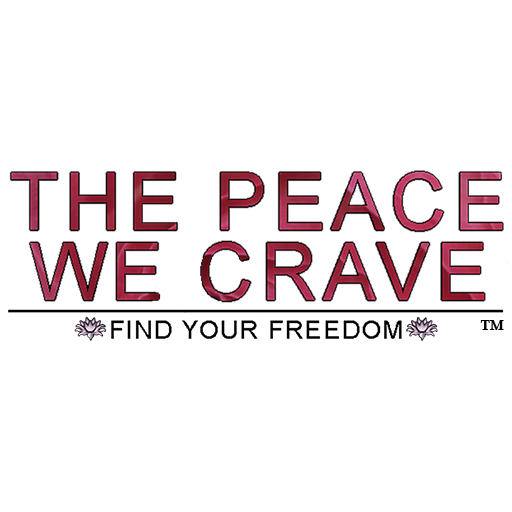I’m Sober… Now What? Five Practical Ways to Enhance Your Sobriety Today
Getting sober is an incredible achievement—but it’s only the beginning. Once you’ve made the courageous decision to stop drinking, the real work begins: rebuilding your life, reconnecting with yourself, and learning how to thrive in sobriety.
So if you’ve ever asked yourself, “I’m sober… now what?”—you’re not alone. Sobriety is about more than abstaining from alcohol. It’s about creating a life you don’t feel the need to escape from. Here are five simple, practical things you can start doing today to strengthen your recovery and deepen your emotional sobriety.
1. Start Your Day with Intention
The way you begin your morning matters. Research shows that morning routines can significantly improve mood, focus, and stress regulation (Santos-Longhurst, 2023). A few minutes of intentional grounding can make a world of difference in how you navigate your day.
Try this:
Breathe deeply before getting out of bed
Set a daily intention or affirmation
Journal or read a short reflection from a recovery book
Saying out loud, “I am safe. I am sober. I am healing.
These small actions help regulate your nervous system and bring clarity into your day.
2. Build a Support Network You Trust
Sobriety requires connection. Emotional sobriety—being able to face life with balance and resilience—flourishes when we feel safe and supported. Research confirms that social support improves long-term recovery outcomes (Kelly et al., 2011).
Whether it’s a sponsor, a recovery coach, a sober Facebook group, or a close friend you can be honest with, make sure you have people in your corner. Community is not a luxury—it’s essential.
3. Move Your Body with Compassion
Exercise is one of the most powerful tools for mental and emotional health in recovery. A 2021 review found that physical activity reduces cravings, anxiety, and depressive symptoms in people recovering from substance use disorders (Wang et al., 2021).
But you don’t need to join a gym or run a marathon. Go for a walk, stretch while listening to music, or take a yoga class that honors your healing process. Movement helps you process emotions, release stress, and reconnect with your body—an important step in trauma-informed recovery.
4. Create a “Sober Happiness List”
Sobriety isn’t just about giving something up—it’s about discovering what truly lights you up. A “Sober Happiness List” is a simple practice that invites you to notice what feels good, authentic, and nourishing.
This might include:
Listening to music with your full attention
Spending time in nature
Doing something creative
Enjoying sober activities with friends
Booking a Reiki or sound healing session
When we invite pleasure into our recovery, we begin to thrive—not just survive.
5. Ask: “What Do I Need Right Now?”
One of the most transformative questions you can ask in sobriety is, “What do I need right now?”
Often, cravings aren’t about alcohol—they’re about unmet needs. Learning to pause, breathe, and check in with yourself builds emotional regulation, which is key to long-term recovery (Mate, 2009).
Do you need rest? Connection? Movement? Silence? Ask yourself gently and respond with compassion.
Sobriety is not a destination—it’s a doorway. What’s waiting on the other side is healing, peace, and a life built with intention.
You don’t need to figure it all out today. Just begin with one small step, one grounded breath, or one act of kindness toward yourself.
And if you’re looking for deeper support on your path, I invite you to consider downloading my free recovery toolkit!
Have more questions or need more support?
References:
Kelly, J. F., Stout, R. L., Greene, M. C., & Slaymaker, V. (2011). Young adults, social networks, and addiction recovery: Post treatment changes in social ties and their role as a mediator of 12-step participation. Psychology of Addictive Behaviors, 25(2), 248–259. https://doi.org/10.1037/a0022321
Wang, D., Wang, Y., Wang, Y., Li, R., & Zhou, C. (2021). Impact of physical exercise on substance use disorders: A meta-analysis. Frontiers in Psychiatry, 12, 658367. https://doi.org/10.3389/fpsyt.2021.658367
Santos-Longhurst, A. (2023). Morning Routine Benefits. Healthline. https://www.healthline.com/health/morning-routine-benefits
Maté, G. (2009). In the Realm of Hungry Ghosts: Close Encounters with Addiction. North Atlantic Books.
Tanya D. is a Usui/Holy Fire® III Karuna Reiki® Master, Pranic Healer, Meditation Instructor, Holistic Recovery Coach and SHE RECOVERS® Coach. Find her @thepeacewecrave on Facebook/Instagram and at www.thepeacewecrave.com for all things recovery, energy, meditation, healing, and peace. Contact her at tanyad@thepeacewecrave.com.


